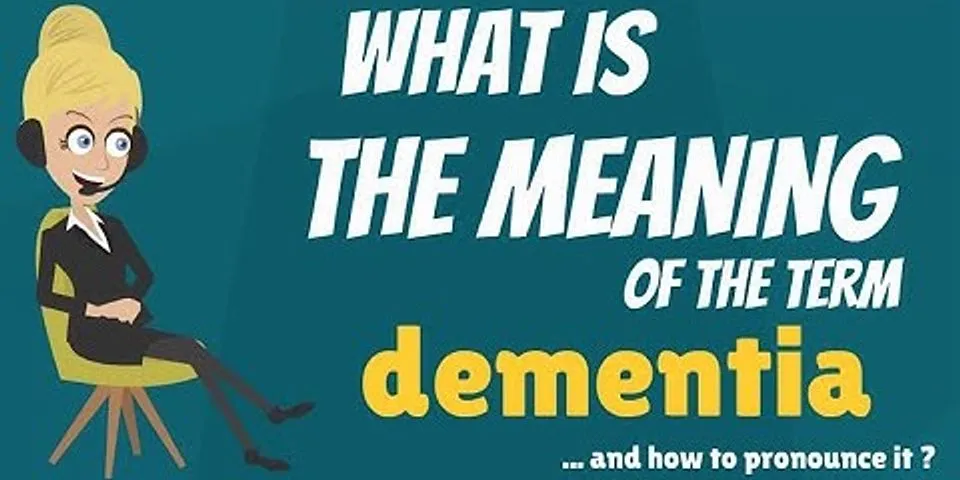Memory loss is unusual forgetfulness. You may not be able to remember new events, recall one or more memories of the past, or both. Show
The memory loss may be for a short time and then resolve (transient). Or, it may not go away, and, depending on the cause, it can get worse over time. In severe cases, such memory impairment may interfere with daily living activities. Normal aging can cause some forgetfulness. It is normal to have some trouble learning new material or needing more time to remember it. But normal aging does not lead to dramatic memory loss. Such memory loss is due to other diseases. Memory loss can be caused by many things. To determine a cause, your health care provider will ask if the problem came on suddenly or slowly. Many areas of the brain help you create and retrieve memories. A problem in any of these areas can lead to memory loss. Memory loss may result from a new injury to the brain, which is caused by or is present after:
Sometimes, memory loss occurs with mental health problems, such as:
Memory loss may be a sign of dementia. Dementia also affects thinking, language, judgment, and behavior. Common types of dementia associated with memory loss are:
Other causes of memory loss include:
A person with memory loss needs a lot of support.
The provider will perform a physical exam and ask about the person's medical history and symptoms. This will usually include asking questions of family members and friends. For this reason, they may be interviewed in-person or by phone. Medical history questions may include:
Tests that may be done include:
Treatment depends on the cause of memory loss. Your provider can tell you more. Forgetfulness; Amnesia; Impaired memory; Loss of memory; Amnestic syndrome; Dementia - memory loss; Mild cognitive impairment - memory loss Kirshner HS, Gifford KA. Intellectual and memory impairments. In: Jankovic J, Mazziotta JC, Pomeroy SL, Newman NJ, eds. Bradley and Daroff's Neurology in Clinical Practice. 8th ed. Philadelphia, PA: Elsevier; 2022:chap 7. Oyebode F. Disturbance of memory. In: Oyebode F, ed. Sims' Symptoms in the Mind: Textbook of Descriptive Psychopathology. 6th ed. Philadelphia, PA: Elsevier; 2018:chap 5. Updated by: Joseph V. Campellone, MD, Department of Neurology, Cooper Medical School at Rowan University, Camden, NJ. Review provided by VeriMed Healthcare Network. Also reviewed by David Zieve, MD, MHA, Medical Director, Brenda Conaway, Editorial Director, and the A.D.A.M. Editorial team. Which term refers to a specific progressive brain disorder that produces loss of memory and confusion quizlet?Dementia is a broad term used to describe the symptoms of a large group of illnesses that affect the brain and cause a progressive decline in a person's functioning. It is not one specific disease. Dementia symptoms include memory loss, confusion, and personality and behavioural changes.
Is a progressive brain disorder in old age that produces loss of memory and confusion?Overview. Alzheimer's disease is a progressive neurologic disorder that causes the brain to shrink (atrophy) and brain cells to die. Alzheimer's disease is the most common cause of dementia — a continuous decline in thinking, behavioral and social skills that affects a person's ability to function independently.
Which brain disorder results in a progressive and irreversible?Alzheimer disease, degenerative brain disorder that develops in mid-to-late adulthood. It results in a progressive and irreversible decline in memory and a deterioration of various other cognitive abilities.
Is Alzheimer's a progressive degenerative disease?Alzheimer's is a progressive disease, where dementia symptoms gradually worsen over a number of years. In its early stages, memory loss is mild, but with late-stage Alzheimer's, individuals lose the ability to carry on a conversation and respond to their environment.
|











